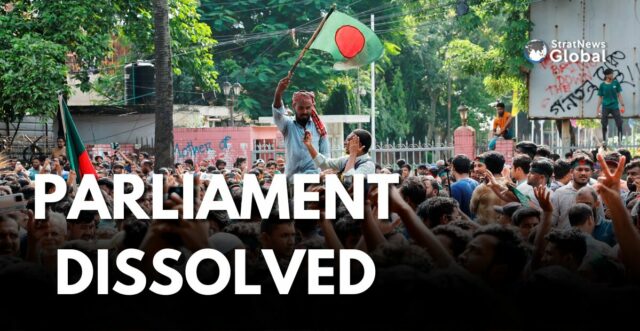On Tuesday, Bangladesh’s president dissolved parliament to pave the way for forming an interim government. This decision came a day after Prime Minister Sheikh Hasina resigned and fled the country following a violent crackdown on a student-led uprising.
Presidential Statement and Khaleda Zia’s Release
A statement from President Mohammed Shahabuddin’s office confirmed the dissolution of parliament. It also announced that Hasina’s arch-rival, Bangladesh Nationalist Party (BNP) chairperson Begum Khaleda Zia, had been freed from house arrest. This move aimed to address the demands of student protesters who had threatened more demonstrations if parliament was not dissolved. The decision followed meetings with defence force heads, political party leaders, student leaders, and civil society representatives.
End of Hasina’s Second Stint in Power
Hasina’s flight on Monday marked the end of her 15-year second stint in power. She had ruled Bangladesh for 20 of the last 30 years, continuing the political movement of her father, state founder Mujib ur Rahman, who was assassinated in 1975. Following the recent unrest, Hasina fled to India and is now staying at a safe house outside New Delhi.
Formation of Interim Government
Bangladesh’s army chief, General Waker-Uz-Zaman, is set to meet with student leaders to discuss forming an interim government. This interim administration is expected to oversee elections soon after taking control. General Zaman announced Hasina’s resignation on Monday, setting the stage for the upcoming political transition.
Key Events Leading to the Dissolution
The dissolution of parliament and the release of Khaleda Zia are significant steps in Bangladesh’s current political landscape. These actions are responses to the intense student protests demanding political change and a fair electoral process. The involvement of various stakeholders, including defence forces, political leaders, and civil society, underscores the complexity of the situation and the need for a collaborative approach to restore stability in the country.
With Inputs from Reuters
Research Associate at StratNewsGlobal, A keen observer of #China and Foreign Affairs. Writer, Weibo Trends, Analyst.
Twitter: @resham_sng





